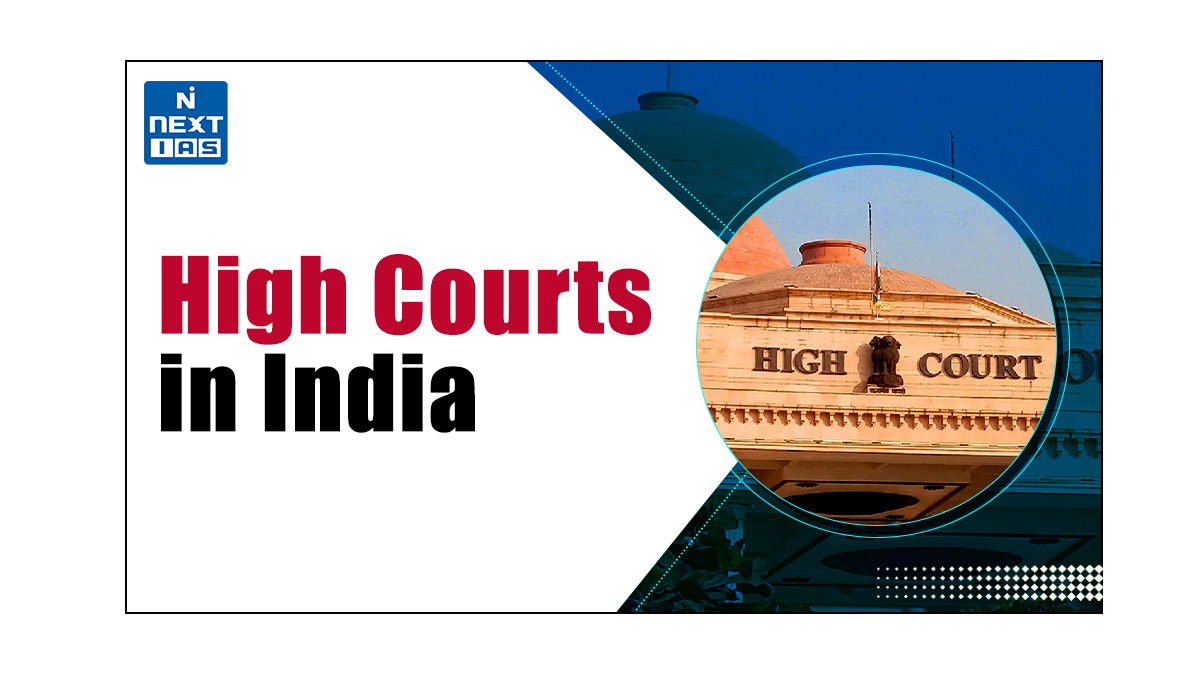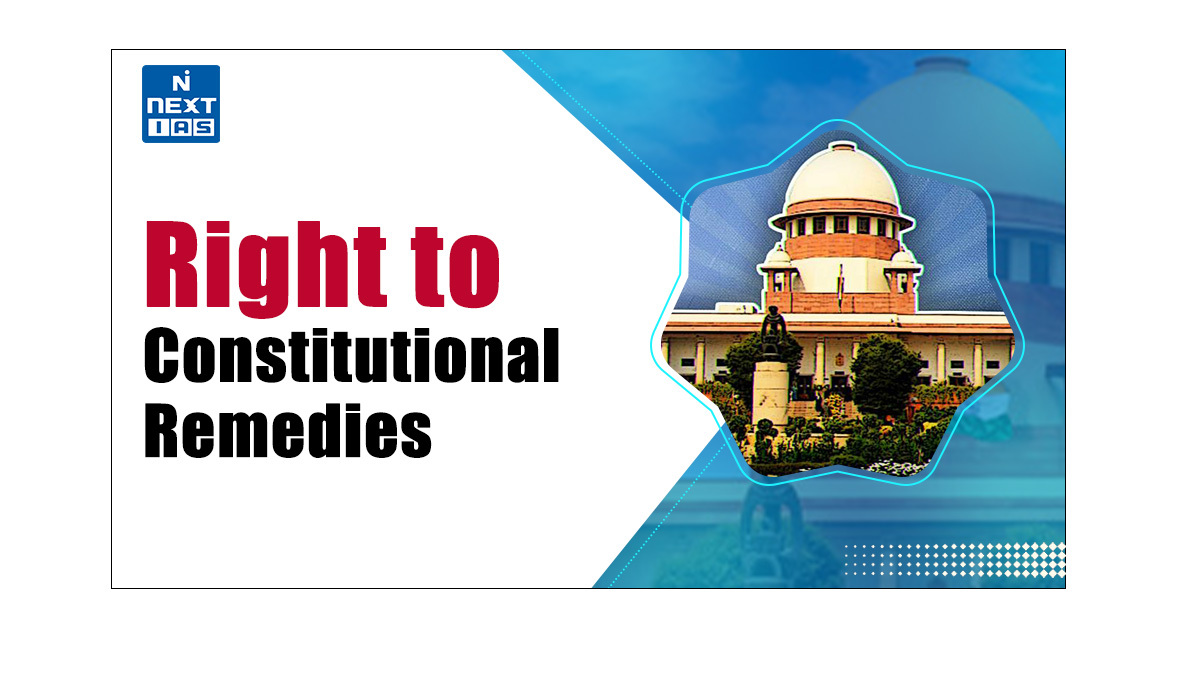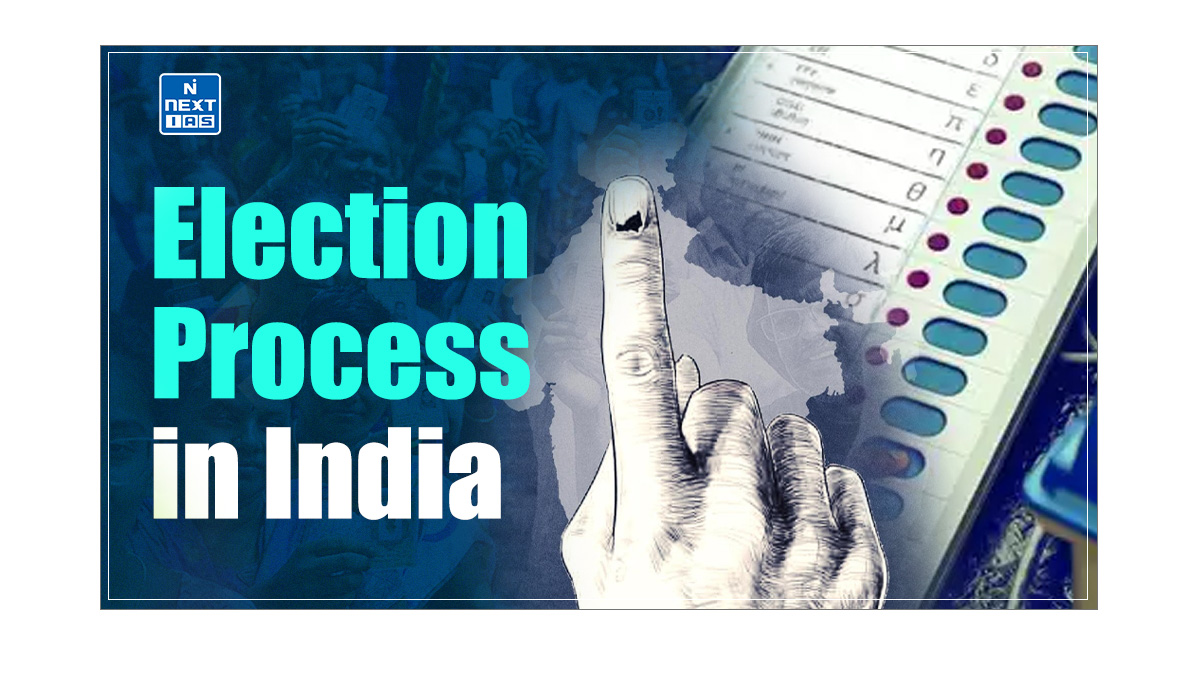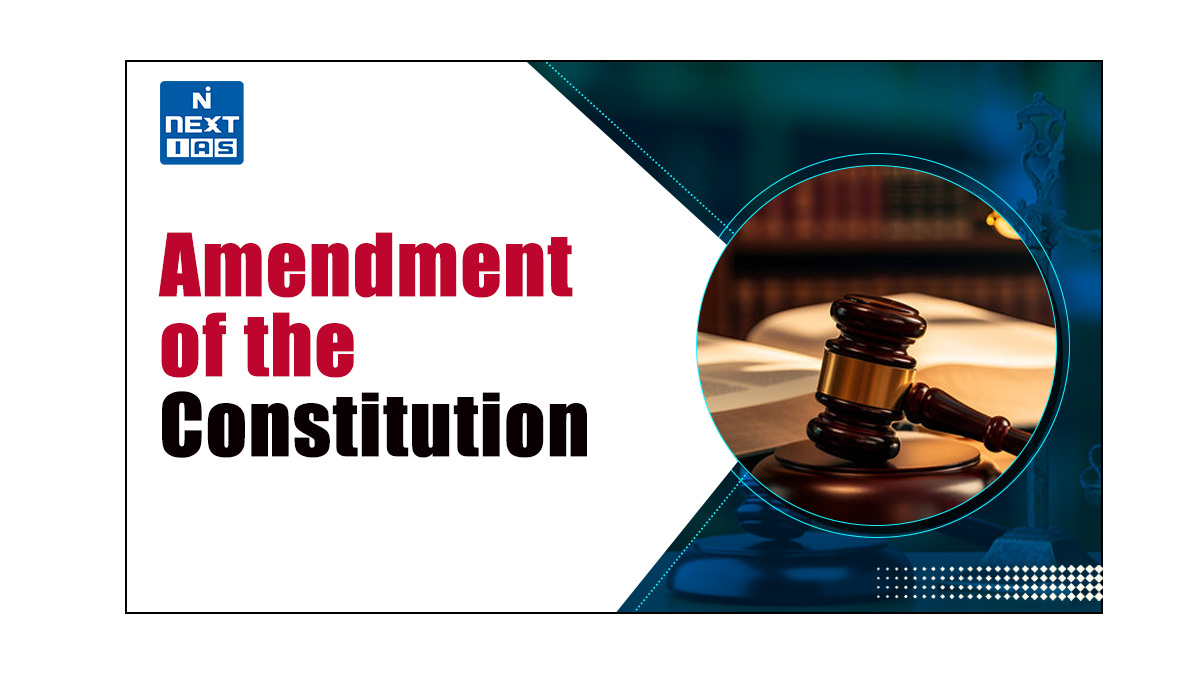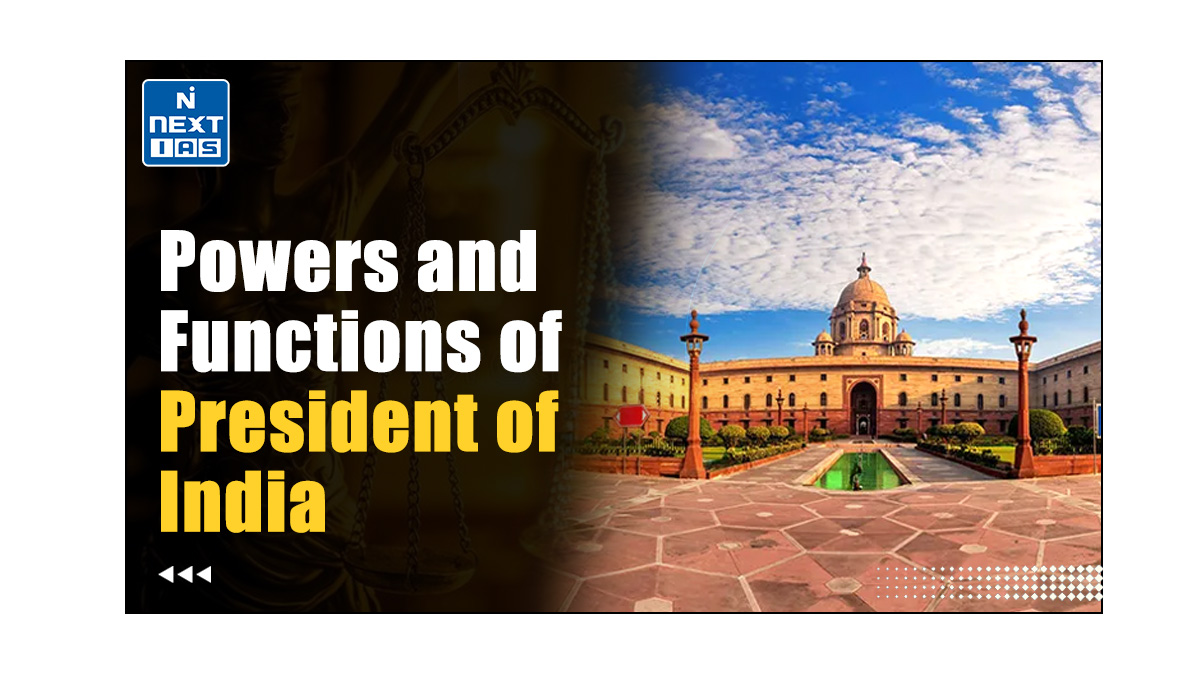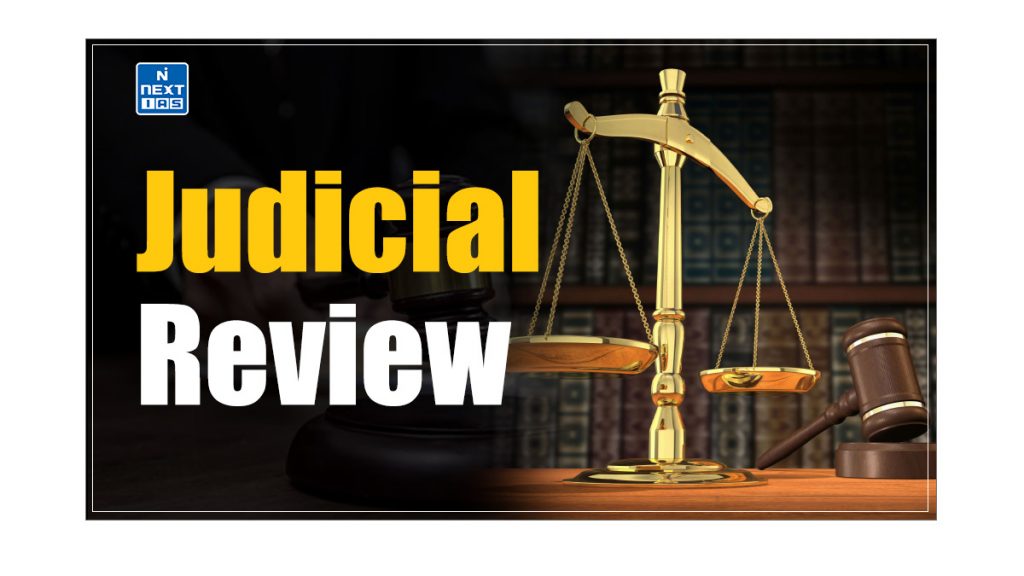
Judicial Review is an essential feature of the Indian democracy. By upholding the rule of law, protecting individual rights, and maintaining the balance of power, judicial review serves as a cornerstone of democracy. This article on Judicial Review aims to study in detail its meaning, constitutional provisions, scope, significance, and other related aspects.
Meaning of Judicial Review
- Judicial review refers to the power of the judiciary to examine the constitutionality of legislative enactments and executive orders of both the Central and State governments.
- If on examination, the judiciary finds them violative of the Constitution (ultra vires), it declares them illegal, unconstitutional, and invalid (null and void).
- Consequently, they cannot be enforced by the government.
Example of a Judicial Review
| Imagine a law gets passed that limits freedom of speech online. Someone might argue this law violates the right to free expression in the Indian Constitution. They could take the case to the High Court or Supreme Court. The judges would then review the law and decide if it goes against the Constitution. If they find it unconstitutional, they can strike it down. This is Judicial Review in action – the Judiciary checking the power of the Legislature to make sure laws are fair and follow the Constitution. |
Evolution of Doctrine of Judicial Review
- The doctrine of Judicial Review originated and developed in the USA.
- In India, the Constitution itself confers the power of judicial review on both the Supreme Court and High Courts.
- The Supreme Court has declared the power of judicial review as a ‘Basic Feature’ of the Constitution.
- Hence, it cannot be curtailed or excluded even by a Constitutional Amendment Act.
Constitutional Provisions for Judicial Review
- Though the phrase ‘Judicial Review’ has nowhere been used in the Constitution, there are many constitutional provisions that confer the power of Judicial Review on the Supreme Court and the High Courts.
- Some of the prominent of such constitutional provisions include:
- Article 13 provides that any law that is inconsistent with or in derogation of Fundamental Rights shall be null and void.
- Article 32 empowers the Supreme Court to issue writs for enforcement of the Fundamental Rights.
- Article 226 empowers the High Courts to issue writs for the enforcement of Fundamental Rights as well as for any other purposes.
| Note: A comprehensive list of the constitutional provisions providing for the doctrine of Judicial Review is given below. -> Read our detailed article on Writs in Indian Constitution. |
Types of Judicial Review
The Judicial Review can be categorized into several types based on the scope and nature of the review:
- Constitutional Judicial Review – This involves the examination of the constitutionality of legislative acts, executive orders, and administrative decisions.
- Courts determine whether these actions are in line with the Constitution.
- Statutory Judicial Review – In this type, courts interpret and assess the validity of statutes or regulations.
- This review ensures that laws are applied correctly and are consistent with other legal provisions.
- Administrative Judicial Review – Courts review the decisions and actions of administrative agencies.
- This type of review checks for compliance with statutory mandates, procedural correctness, and the reasonableness of agency decisions.
- Procedural Judicial Review – This focuses on whether the correct legal processes and procedures were followed in making a decision.
- Courts ensure that due process and fair trial principles are upheld.
- Substantive Judicial Review – Courts evaluate the substance or content of laws and decisions to determine their fairness, reasonableness, and adherence to principles of justice.
- This review goes beyond procedural aspects to the merits of the case.
Scope of Judicial Review in India
As far as the scope of Judicial Review is concerned, the constitutional validity of a legislative enactment or an executive order can be challenged in the Supreme Court or the High Courts on the following three grounds:
- It infringes the Fundamental Rights (Part III),
- It is outside the competence of the authority which has framed it, and
- It is repugnant to the constitutional provisions.
Scope of Judicial Review in India vis-a-vis USA
- The scope of Judicial Review in India is narrower than that in the USA.
- This is because the American Constitution provides for ‘Due Process of Law’, whereas the Indian Constitution provides for ‘Procedure Established by Law’.
- Due Process of Law (USA) – The provision of Due Process of Law in the USA means that the Judiciary examines laws/executive orders not only on substantive grounds of being unlawful but also on procedural grounds of being unreasonable.
- Procedure Established by Law (India) – The provision of Procedure Established by Law in India means that the Judiciary can examine laws/executive orders only on substantive grounds (i.e. whether they are within the powers of the authority concerned or not), and not on the procedural grounds (i.e. its reasonableness, suitability, or policy implications).
Judicial Review of 9th Schedule
The chronological evolution of the position w.r.t judicial review of the 9th Schedule of the Constitution can be seen as follows:
1st Constitutional Amendment Act (1951)
- The 1st Constitutional Amendment Act (1951) added the 9th Schedule and Article 31B to the Constitution.
- Article 31B, so added, provides that acts and regulations included in the 9th Schedule shall be immune from being challenged and invalidated on the ground of contravention of any of the Fundamental Rights.
Kesavananda Bharati vs. State of Kerala Case (1973)
- In this case, the Supreme Court ruled that the acts and regulations that are included in the Ninth Schedule are open to challenge on the grounds of being violative of the basic structure of the Constitution.
Waman Rao vs. Union of India Case (1980)
- In this case, the Supreme Court held that the various acts and regulations included in the Ninth Schedule after the date of judgment in the Kesavananda Bharati case (i.e. 24 April 1973) are valid only if they do not damage the basic structure of the constitution.
I. R. Coelho vs. State of Tamil Nadu Case (2007)
- In this case, the Supreme Court reaffirmed the above view and held that there could not be any blanket immunity from the Judicial Review of laws included in the 9th Schedule.
- The court went on to say that the Judicial Review is a ‘basic feature’ of the Constitution and it could not be taken away by putting a law under the 9th Schedule.
Present Position
- The present position regarding the judicial review of the 9th schedule is what the court said in the I.R. Coelho Case (2007).
- Accordingly, the court can examine acts & regulations included in the 9th Schedule after the date 24 April 1973 are open to challenge in court if they violate Fundamental Rights guaranteed under Articles 14, 15, 19, and 21 or the Basic Structure of the Constitution.
Importance of Judicial Review
As observed by the Supreme Court in its various judgments, the doctrine of Judicial Review holds significant importance for the following main reasons:
- To uphold the principle of the supremacy of the Constitution.
- To protect the Fundamental Rights of the citizens.
- To maintain federal equilibrium, i.e. balance between the Centre and the states.
Benefits of Judicial Review
Some of the major benefits of judicial review can be seen as follows:
- Upholds Constitutional Supremacy – Judicial review reinforces the principle that the Constitution is the supreme law of the land and ensures that all laws and government actions must conform to the principles and values enshrined in the Constitution.
- Checks and Balances – By exercising judicial review, courts serve as a check on the powers of the legislative and executive branches of government. This helps maintain a balance of power and prevents any single branch from becoming too dominant or abusing its authority.
- Checks Misuse of Powers – It helps check the misuse of power by the legislature and executive. This, in turn, prevents the possibility of tyranny of the government.
- Protects Citizens’ Rights – Judicial review acts as a safeguard against government actions that infringe upon the rights and liberties of individuals guaranteed by the Constitution.
- Maintains Federal Balance – It helps settle any dispute related to the division of powers between the Center and the States. This, in turn, ensures that the federal balance is maintained.
- Independence of Judiciary – By checking the executive and legislature from encroaching upon the judiciary’s jurisdiction, it helps secure the independence of the judiciary.
- Protection of Minority Rights – Judicial review serves as a bulwark against the tyranny of the majority by protecting the rights of minority groups from oppressive or discriminatory legislation targeting vulnerable or marginalized communities.
- Accountability and Transparency – Judicial review enhances transparency and accountability in governance to ensure that government decisions are subject to public scrutiny and vigilance.
Problems with Judicial Review
The major criticisms of the doctrine of the Judicial Review can be seen as follows:
- Frequent Interference – Some critics fear frequent judicial interventions in governmental decisions or policies in the name of judicial review. This, in turn, can create uncertainty and instability in governance.
- Fear of Judicial Overreach – Critics argue that judicial review can lead to judicial overreach, where courts overstep their boundaries and encroach upon the domains of the legislature and executive.
- Delays and Backlogs – Judicial review processes can be time-consuming and costly, leading to delays in resolving legal disputes and creating backlogs in court systems. This can hinder the timely resolution of important legal issues.
- Undermining Democracy – Some argue that unelected judges wielding the power to invalidate laws can undermine the powers of elected representatives. This goes against the basic principle of democracy.
Conclusion
The doctrine of Judicial Review serves as a cornerstone of democracy. While it faces certain challenges and criticisms, its role in safeguarding constitutional governance and preventing the abuse of power remains indispensable. It ensures that the Constitution remains the supreme law of the land and that government actions remain within the bounds of the Constitution.
Constitutional Provisions Related to Judicial Review
| Prominent constitutional provisions that provide for the doctrine of judicial review are as follows: -> Article 13 declares that all laws that are inconsistent with or in derogation of the Fundamental Rights shall be null and void. Article 32 guarantees the right to move the Supreme Court for the enforcement of Fundamental Rights and empowers the Supreme Court to issue writs for that purpose. -> Article 131 provides for the original jurisdiction of the Supreme Court in center–state and inter-state disputes. -> Article 132 provides for the appellate jurisdiction of the Supreme Court in constitutional cases. -> Article 133 provides for the appellate jurisdiction of the Supreme Court in civil cases. -> Article 134 provides for the appellate jurisdiction of the Supreme Court in criminal cases. -> Article 134A deals with the certificate for appeal to the Supreme Court from the High Courts. -> Article 135 empowers the Supreme Court to exercise the jurisdiction and powers of the Federal Court under any constitutional law. -> Article 136 authorizes the Supreme Court to grant special leave to appeal from any court or tribunal (except military tribunal and court-martial). -> Article 143 authorizes the President to seek the opinion of the Supreme Court on any question of law or fact and on any pre-constitution legal matters. -> Article 226 empowers the High Courts to issue directions, orders, or writs for the enforcement of the Fundamental Rights and for any other purpose. -> Article 227 vests in the High Courts the power of superintendence over all courts and tribunals within their respective territorial jurisdictions (except military courts or tribunals). -> Article 245 deals with the territorial extent of laws made by Parliament and by the Legislatures of States. -> Article 246 deals with the subject matter of laws made by Parliament and by the Legislatures of States (Le., Union List, State List, and Concurrent List). -> Articles 251 and 254 provide that in case of a conflict between the central law and state law, the central law prevails over the state law and the state law shall be void. -> Article 372 deals with the continuance in force of the pre-constitution laws. |
Frequently Asked Questions (FAQs)
Is Article 226 a Judicial Review?
Yes, Article 226 of the Indian Constitution provides the High Courts with the power of judicial review. It allows them to issue writs for the enforcement of fundamental rights and for any other purpose, enabling them to examine the legality of legislative and executive actions.
What is Writ?
A writ is a formal legal order issued by a court that commands an individual or entity to perform or refrain from performing a specific act. In the context of Indian law, writs like habeas corpus, mandamus, prohibition, certiorari, and quo warranto are tools used to protect individuals’ rights and ensure justice.
